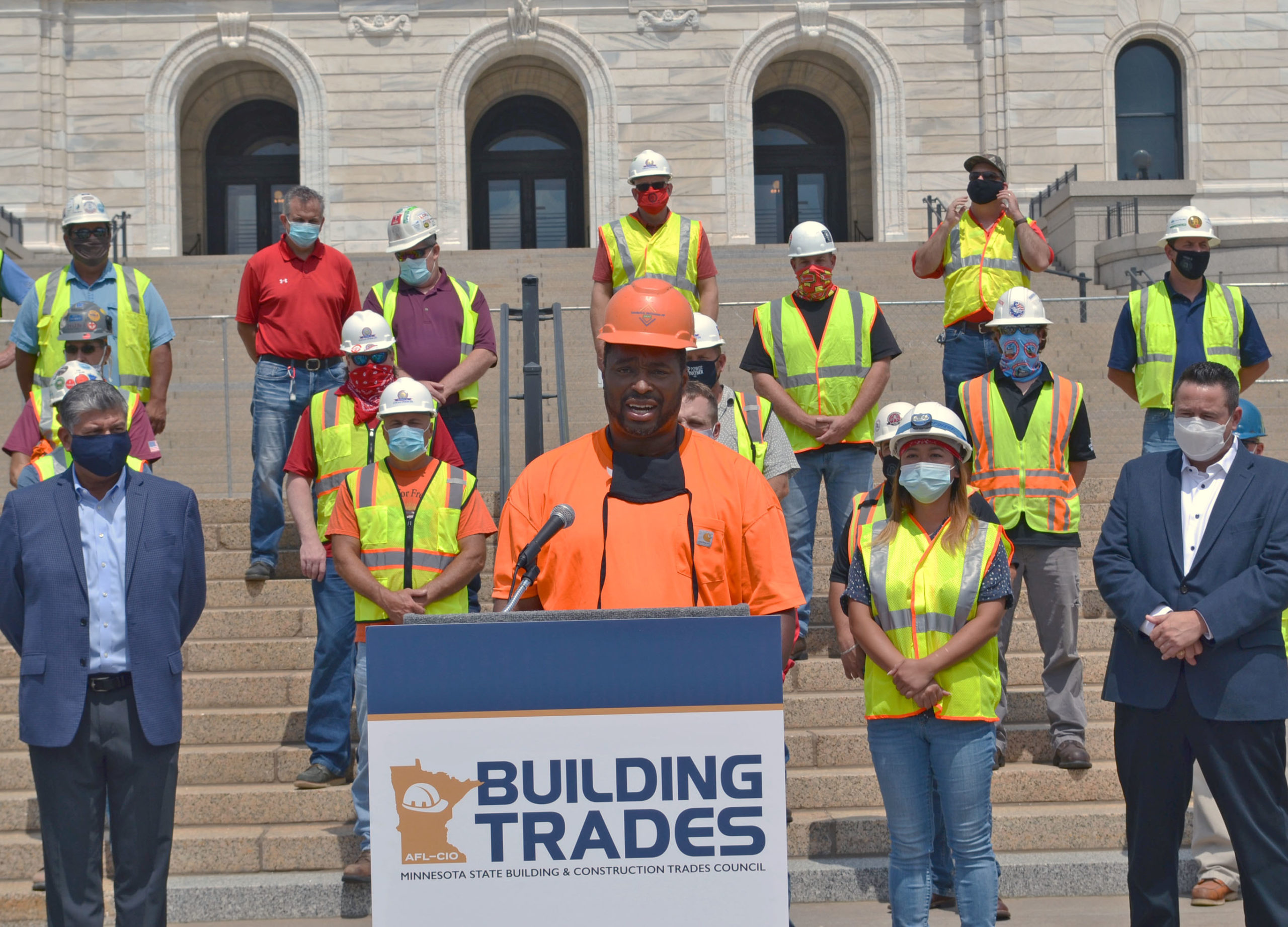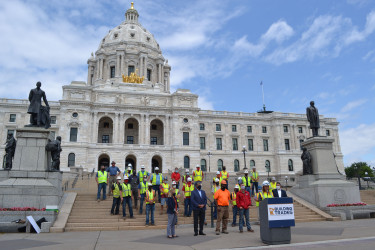
Fred Livingston, a member of LIUNA Local 563, speaks at a Capitol press conference on the bonding bill.

Share
If Minnesota lawmakers treated their jobs as seriously as the state’s union tradespeople treat theirs, Gov. Tim Walz would be signing a bonding bill this week.
That’s the message Minnesota’s Building and Construction Trades unions brought to the Capitol in St. Paul today, hours after legislators adjourned a second special session without investing in infrastructure and local jobs.
“Construction workers put in long, hard, exhausting hours, and we get the job done well,” said Fred Livingston, a former Marine who joined Laborers Local 563 after reentering civilian life. “We take our jobs very seriously.
“My brothers and sisters and their families hope lawmakers come back to the table, sit down, roll their sleeves up and do whatever is required to get this bonding bill passed … so we don’t have to tell our families we lost our jobs.”
Infrastructure bonding bills authorize the state to borrow money for investments in local water-and-sewer systems, roads, bridges and public buildings. It is traditionally a priority for lawmakers during even-numbered years like 2020, when they are not working on the biennial state budget.
Bonding, however, requires support from two-thirds of the House and Senate, and this year Republican lawmakers have used the measure as a bargaining chip in efforts to force Walz to call off the state of emergency he’s declared to respond quickly to the COVID-19 pandemic.
Led by Minority Leader Kurt Daudt, House Republicans held firm to that stance early this morning. They voted in lockstep to block a package of more than $1 billion in local projects that would have created an estimated 12,000 jobs and generated $3 billion in economic impact, according to an analysis by the Building Trades.
Jason George, business manager of Operating Engineers Local 49, said Daudt and his caucus “chose to fight with the governor instead of creating good jobs in Minnesota. That’s just something I don’t understand.”
The political standoff comes at a delicate time for both the construction industry and the state’s economy, as the COVID-19 pandemic continues to cause uncertainty.
Employment in Minnesota’s construction industry has remained steady so far during the pandemic, union leaders at the Capitol said, but there are signs of trouble ahead.
Minnesota Pipe Trades President David Ybarra said several significant projects have been delayed or canceled since the economic downturn, while design and engineering firms warn of a slowdown in demand for their services.
“It goes without saying that if architects and engineers are not seeing projects, our members will be without work eventually,” Ybarra said.
State lawmakers may get yet another crack at the infrastructure bill in August, when Walz would need to call the Legislature back into session to extend his emergency powers.
That gives union tradespeople a glimmer of hope their representatives may finally do the job right – even if it’s not done on time.
Keoudon Yang, an apprentice with the Electrical Workers union, said it’s “unfortunate that state leadership, in these challenging times, will not do their part.”
“This has been one of the most uncertain years and our future feels unpredictable at best,” Carpenters Local 930 apprentice Benjamin Statz added. “We need the Legislature to do their part and chart a strong path forward for young trades workers.”


